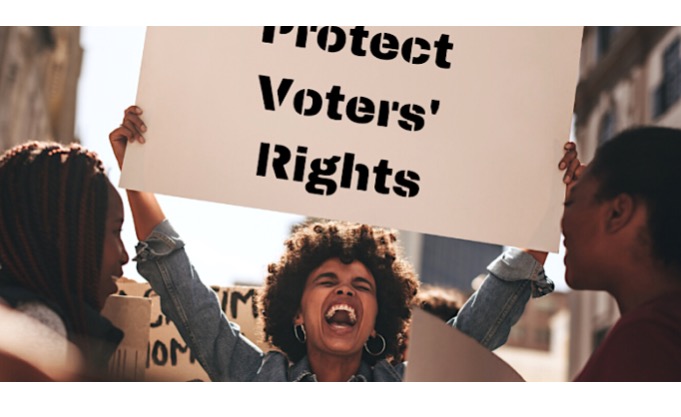CommentsVOTING RIGHTS - Earlier this year, San Francisco’s Board of Supervisors unanimously voted to conduct a pilot of an open-source voting system in November’s election.
Now San Francisco and the rest of the state needs California Secretary of State Shirley Weber to approve that pilot plan — and she needs to act by May 7.
Election security experts and election integrity activists have long called for the computer source code of voting machines to be open source. Unlike the secret source code of for-profit proprietary voting systems used in California and other states, open-source voting systems are open to public inspection. Thus, any claims about voting security and accuracy can be independently verified by anyone.
As longtime leaders in electing women to public office, we often hear that voters want to trust that their votes will count — and be counted as cast.
That’s why we pushed the Legislature to pass a 2013 law, Senate Bill 360, to let counties conduct pilots of open-source voting systems. Then-Assemblymember Weber cast a yes vote. Now, as secretary of state, she has the opportunity to strengthen a fundamental aspect of voting rights: ensuring public confidence that our votes will be counted securely and transparently.
SB 360 required the secretary of state to publish regulations for open-source pilots. If those regulations are not published before the election, San Francisco cannot legally conduct a pilot.
San Francisco submitted its plan for a pilot in November’s election on Feb. 7. It follows SB 360’s requirements and the secretary of state’s preliminary guidance, and calls for San Francisco’s Department of Elections and the nonprofit open-source vendor VotingWorks to work together and make improvements before the election based on feedback from the county and voters — one of the main purposes of a pilot.
The secretary of state must approve San Francisco’s plan by May 7 — without adding requirements the vendor cannot meet — and then get the public regulation process started.
Sen. Alex Padilla, California’s former secretary of state, said it well: “Open-source is the ultimate in transparency and accountability for all.”
Time is running out.
More than 4,000 Californians signed petitions from the California Clean Money Campaign supporting San Francisco’s pilot project. San Francisco Board of Supervisors President Shamann Walton authored the city’s open-source pilot ordinance, and Mayor London Breed signed it.
It would be the first open-source pilot in California — a key step to approving open-source voting for the whole state.
The California Democratic Party platform has called for open-source software to provide transparency in voting systems since 2012. California’s independent Little Hoover Commission also did so last year, quoting University of California at Davis computer security professor and researcher Matt Bishop. “If we want elections to be transparent, then people should be able to see how their votes are counted,” he said.
As Russian President Vladimir Putin increasingly lashes out over U.S support for Ukraine, intelligence officials are warning that Russia is likely to escalate attacks on U.S. election infrastructure.
We believe the time to secure our votes is now.
Weber knows from her own lived experience that the right to vote is a cornerstone of our democracy. She has dedicated her career to protecting and expanding voting rights.
Right now is Secretary Weber’s opportunity to lead the nation and strengthen voting rights for all by helping open-source voting become a reality. We respectfully urge her to approve San Francisco’s open-source voting pilot project.
(Carolyn Fowler, chair of the California Democratic Party Women’s Caucus, has been on the Los Angeles Voting Systems for All People advisory board since 2010. Christine Pelosi is an attorney and past chair of the California Democratic Party Women’s Caucus. This article was published in CalMatters.)







